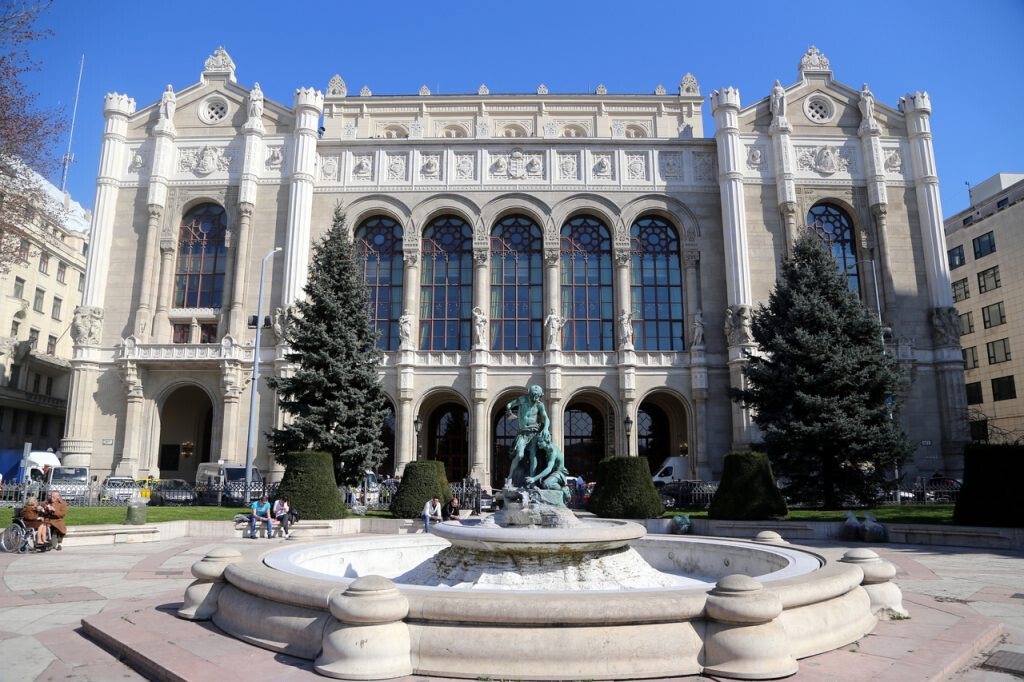
Budapest, Hungary – January 15, 2025 – One hundred and sixty years ago, on January 15, 1865, the Vigadó of Pest (Pesti Vigadó) opened its doors, establishing itself as a pivotal center of social and cultural life in Hungary. Despite initial public and professional skepticism, architect Frigyes Feszl's masterpiece has since become an enduring symbol of Hungarian Romantic architecture.
The Vigadó's history is deeply intertwined with the evolution of Pest itself. Before Feszl's grand structure, the site was occupied by a roundel, a defensive fortification, which was demolished in 1789. The desire for a prominent cultural venue led to the construction of the Redoute, designed by Mihály Pollack, the architect of the Hungarian National Museum. Completed in 1832 and opened the following year, the Redoute quickly became Pest's premier concert hall.
The Redoute played a significant role in Hungarian national life, hosting crucial events leading up to the 1848 Revolution and War of Independence. Notably, it was the venue for a charity concert following the devastating 1838 flood, where Ferenc Liszt premiered his rendition of the Rákóczi March, a piece that became a symbol of Hungarian patriotism. The Redoute also served as the site of the first National Assembly during the revolution, where delegates pledged support for the nation's defense.
Tragically, the Redoute was destroyed in May 1849 during the siege of Buda by Heinrich Hentzi, the commander of the Austrian-occupied Buda Castle. The reconstruction efforts faced numerous challenges, with initial plans by József Hild failing to materialize due to funding issues. In 1859, Frigyes Feszl was finally commissioned to design the new Vigadó, and construction began the following year.
Feszl's Vigadó, with its distinctive Romantic style, was initially met with mixed reactions. Its intricate facade and lavish interior were not immediately embraced, and the building was sometimes referred to by its old name, Redoute, or even derisively as "Vigarda." However, the name Vigadó, meaning "place of merriment," eventually prevailed.
A notable feature of the Vigadó was its interior decoration. Feszl's original vision of mosaic-covered walls was replaced by frescoes, making it the first public building in Pest to feature such artwork. The Vigadó quickly became a hub for cultural events, hosting concerts, balls, and receptions. Emperor Franz Joseph I himself attended a ball in 1867 to celebrate his coronation. The building also played a vital role in the unification of Pest, Buda, and Óbuda, which led to the creation of Budapest in 1873.
The Vigadó's concert hall witnessed performances by some of the most celebrated musicians of the era, including Johann Strauss, Pietro Mascagni, Antonín Dvořák, and Johannes Brahms, who premiered his Piano Concerto in B flat major there in 1881. Hungarian musical luminaries such as Ernő Dohnányi, Annie Fischer, and the Budapest Philharmonic Orchestra also graced its stage.
During World War II, the Vigadó suffered severe damage, prompting debates about its restoration. Despite the devastation, the building was designated a historic monument in 1954, and reconstruction efforts began in 1968. The renovated Vigadó reopened in 1980, featuring multiple halls and an exhibition gallery, continuing to host renowned artists like György Cziffra.
In 2004, the Vigadó closed for a comprehensive restoration to restore it to its original splendor. The Hungarian Academy of Arts acquired ownership in 2013, and the fully restored Vigadó reopened on March 14, 2014. Today, the Vigadó stands as a testament to Hungarian architectural and cultural heritage, continuing to serve as a vibrant center for the arts and a symbol of national pride. Its 160th anniversary is a celebration of its resilience and enduring legacy.
[Copyright (c) Global Economic Times. All Rights Reserved.]






























